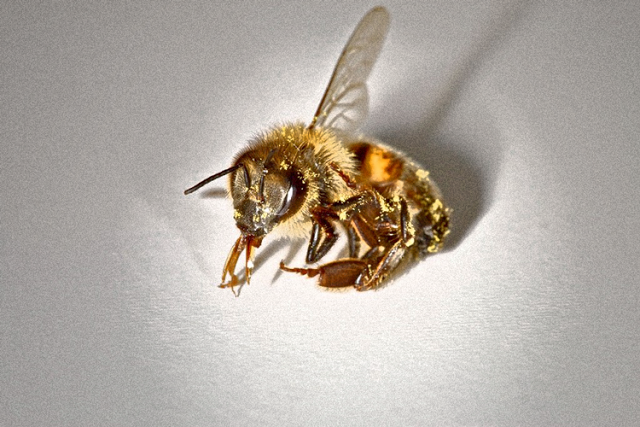| Online: | |
| Visits: | |
| Stories: |
Since April 2014, Bee Population Has Declined 40% – 60%
(ANTIMEDIA)In the worst colony die-off in nine years, American beekeepers lost 42.1% of their hives since April 2014, with the heaviest loss occurring in summer — a fact that has alarmed entomologists. As part of an annual survey in partnership with the US Dept of Agriculture, beekeepers reported that over two in five of their colonies had died, and now the task of bringing numbers back, means they will have to divide the surviving hives.
According to study co-author Keith Delaplane, “What we’re seeing with this bee problem is just a loud signal that there’s some bad things happening with our agro-ecosystems. We just happen to notice it with the honeybee because they are so easy to count.”
Extremely heavy losses were seen in Delaware, Illinois, Iowa, Maine, Maryland, Oklahoma, Pennsylvania, and Wisconsin, where 60% of the bees were wiped out.
And though these figures are startlingly high, what really has entomologists’ attention, is that more loss occurred in summer than winter — for the first time. In the summer of the previous year’s survey, beekeepers lost 19.8% of their bees, but that number rose to 27.4% this time around. Jeff Pettis, a scientist with the USDA, who studies bees, said the unusual summertime deaths also featured heavy queen loss concentrated in more mobile colonies, in itself a noteworthy characteristic.
Read more »
Every Day is Earth Day
Source: http://www.riseearth.com/2015/05/since-april-2014-bee-population-has.html





